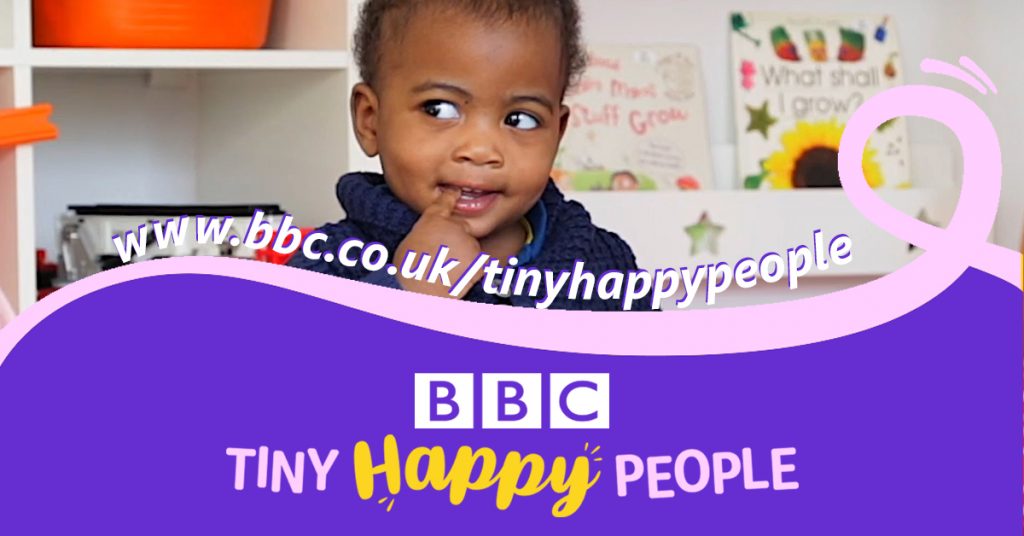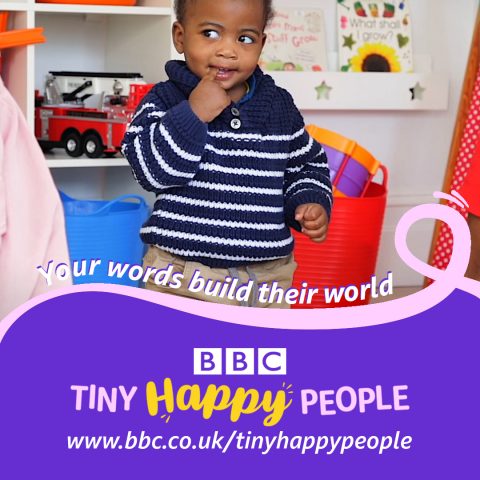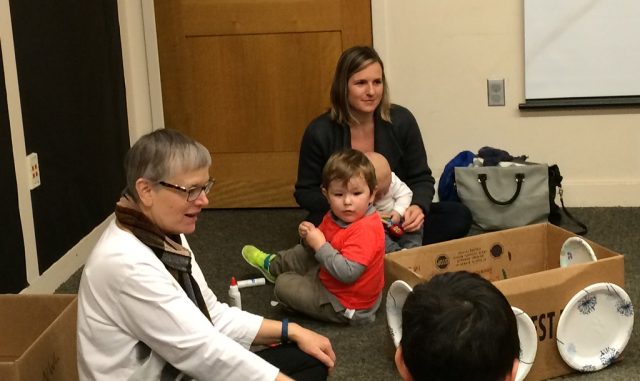Campaign of the month – Tiny Happy People

We’re buzzing about the BBC’s Tiny Happy People – a campaign that aims to help parents support their child’s language development.
Around one in three children (31%) start primary school without reaching a good level of early development, a figure that rises to one in two when talking about children from poor backgrounds (46%). Unfortunately by the time a child starts school it’s often too late for these children to catch up.
But there is a very simple solution. Talking more, singing more and playing more with a child in those early years provides a big boost to the way babies’ brains grow and develop – which is the aim of the BBC’s fantastic new campaign Tiny Happy People.

5 things we particularly love…
1. Cut through
BBC means bigger audiences + bigger budgets + trusted institution = more people will hear about this issue. And people really deserve to know about this.
At the moment people walk away from the maternity clinics with a mountain of overwhelming leaflets about babies, most of which get ignored; but now a simple Hey, check out Tiny Happy People from a midwife, friend or relative could mean thousands more people are starting to have more conversations with their child.
2. Tone
It’s happy, it’s positive, it’s uplifting but more importantly it feels like it’s on our side.
They get it. Parents are ****** busy and already doing their best – it’s all about inspiring and empowering through modelling and demonstrating the ideal behaviours, not telling us we must do something.
I’m particularly thrilled by this because it corroborates everything we discovered in the development days of Wonder Words – the parents we worked with in our co-creation process were saying to us ‘show me, don’t tell me’, ‘don’t judge me for not being perfect‘, ‘give me practicable tips that fit in around my normal life’ and Tiny Happy People strikes this chord perfectly.
3. Something for everyone
There’s lots of lovely, evidenced based, easy-to-digest content for everyone: parents trying out funny games, tips from speech therapists, quizzes, facts and poems. And… I get the distinct impression there’s a whole lot more to come.

4. Collaboration
The BBC has recognised that this is a national issue. Much like childhood obesity it cannot be tackled alone. They’ve engaged early years practitioners, children centres, libraries, speech and language therapists, charities and parents so much in the development of the campaign that not only have they got brilliant content but they already have an excited and passionate supporter base.
5. It’s time
This topic needs to be dealt with at scale.
Parents have the right to know how and why their own behaviour can make significant changes to their child’s life outcomes.
As well as saying glorious things about Tiny Happy People I must not and cannot ignore the numerous charities and organisations – Better Start, National Literacy Trust, Save The Children to name a few – who’ve been doing amazing work on this issue for years, (least of all because we worked with a couple of them).
However, I’m sure they’ll share our excitement too, because having the sheer weight and influence of someone like the BBC behind this topic means it can finally get the mainstream attention it deserves.
